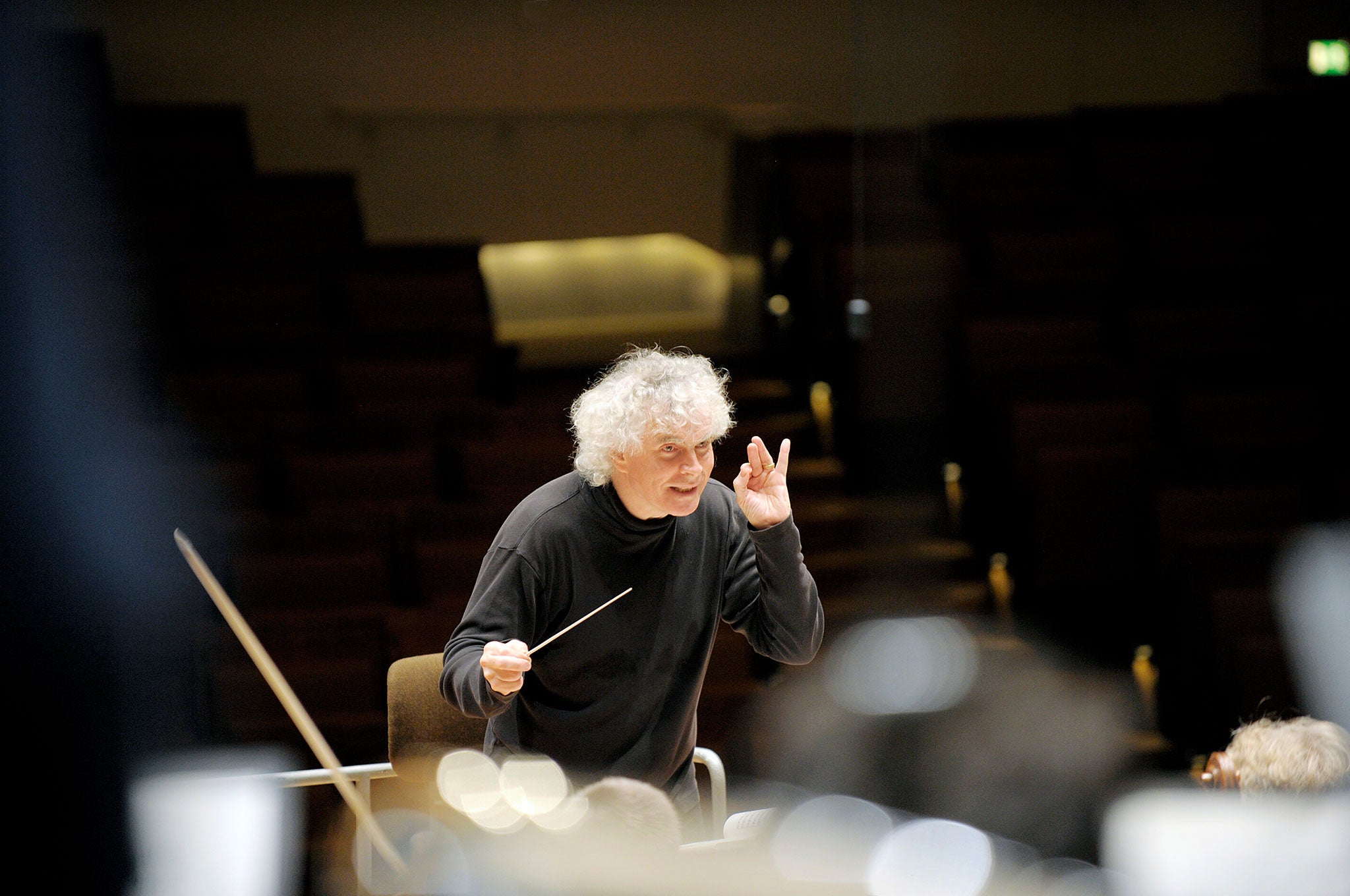Matthews, Padmore, LSO and Chorus/Rattle at the Barbican, London: A first-class line-up
This ambitious work for soloists, chorus, and orchestra is the setting of a cod-Oriental verse epic

Your support helps us to tell the story
From reproductive rights to climate change to Big Tech, The Independent is on the ground when the story is developing. Whether it's investigating the financials of Elon Musk's pro-Trump PAC or producing our latest documentary, 'The A Word', which shines a light on the American women fighting for reproductive rights, we know how important it is to parse out the facts from the messaging.
At such a critical moment in US history, we need reporters on the ground. Your donation allows us to keep sending journalists to speak to both sides of the story.
The Independent is trusted by Americans across the entire political spectrum. And unlike many other quality news outlets, we choose not to lock Americans out of our reporting and analysis with paywalls. We believe quality journalism should be available to everyone, paid for by those who can afford it.
Your support makes all the difference.It’s quite something to present a major work by a major composer which hardly anyone in the audience has heard, but that’s what Simon Rattle and the London Symphony Orchestra did with Schumann’s oratorio Das Paradies und die Peri.
This ambitious work for soloists, chorus, and orchestra is the setting of a cod-Oriental verse epic which was all the rage in early nineteenth-century Europe; it concerns the attempts of a female spirit expelled from Paradise to earn her way back in through virtuous deeds, and she eventually does so by collecting the tear of a sinner shamed into repentance by the spectacle of a child at prayer.
This saccharine sentimentality won it huge success in its day; it fell out of favour, but is now making a modest comeback.
Rattle and co gave it the best possible airing, with Mark Padmore as the narrator, Sally Matthews as the Peri, and a first-class line-up of subsidiary soloists.
The libretto may be unmitigated twaddle, but Schumann’s writing for both singers and orchestra is on a very high level from start to finish, so one extracts what pleasure one can: in this case from the brilliance of the playing, and from the soaring magnificence of Matthews’ arias. But it’s still a period piece.
Join our commenting forum
Join thought-provoking conversations, follow other Independent readers and see their replies
Comments